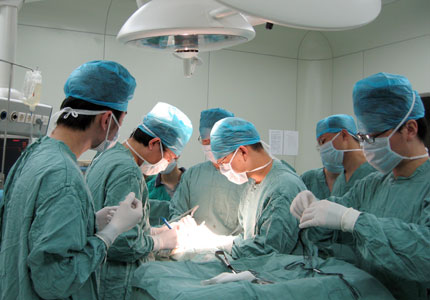Official word on Chinese transplants
Donations from prisoners will continue
 Because more than 90% of its transplanted organs come from executed prisoners, China organ donation has a terrible reputation. However, a brief sketch of government reforms in a recent issue of The Lancet suggests that foreign criticisms are being taken seriously. One of the authors, Jiefu Huang, a doctor at Peking Union Medical College Hospital, in Beijing, is a vice-minister of health in the national government.
Because more than 90% of its transplanted organs come from executed prisoners, China organ donation has a terrible reputation. However, a brief sketch of government reforms in a recent issue of The Lancet suggests that foreign criticisms are being taken seriously. One of the authors, Jiefu Huang, a doctor at Peking Union Medical College Hospital, in Beijing, is a vice-minister of health in the national government.
Work on a legal framework for transplants began in 2006, when organ transplants had reached about 11,000. Financial compensation has now been banned with severe penalties and the government says that “altruism should be the driving principle”. It also tackled transplant tourism by stating that Chinese citizens should be given priority over foreigners.
In fact, the official statistics show a decline in the number of transplants since 2004 precisely because the government is trying to reduce the number of cadaveric donors and increase the number of living donors. The Ministry of Health is also trying to set up an opt-in system with people’s donation preferences indicated on their driver’s license.
However, the article implies that in the foreseeable future, the practice of using organs from executed prisoners will continue, albeit with “written consent for organ removal from the donor”. “The long-term goal for social development is to abolish the death penalty but, until then, regulations need to protect prisoners’ rights and desires and separate transplant programmes from the prison system.” ~ Lancet, Dec 6
- Queensland legalises ‘assisted dying’ - September 19, 2021
- Is abortion a global public health emergency? - April 11, 2021
- Dutch doctors cleared to euthanise dementia patients who have advance directives - November 22, 2020
